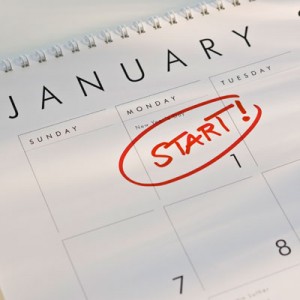Tag Archive for: Health Tips
“The two main causes of injuries among snowboarders and skiers are falls and collisions,” says Dr. Brad Yee. “The way to avoid injury is to do pre-season dry land training exercises. Snowboarders need to stabilize and strengthen their upper extremities, like their shoulders and arms,” says Dr. Yee. “Skiers need to strengthen their lower extremities, specifically quads and hamstring muscles.”
Dr. Yee says that core strength for the spine is important for both sports. He suggests that skiers and snowboarders could include one or two lessons at the beginning of the season, just to get the cobwebs out of their technique, and to rid themselves of any bad habits. Often when the knees get tired, more force is exerted on the spine with each bump. Exercise and working to give the spine extra strength and flexibility will help resist the rigors of skiing. Even when people are on the slopes, stretching exercises are important.
The first run and last run of the day should be done on easier slopes. Most injuries happen near the end of the day when slope enthusiasts are fighting both fatigue and poorer snow conditions.
Commenting on recent studies comparing snowboarding and alpine skiing injuries, Dr. Yee notes the following:
- Injury patterns differ between alpine skiing and snowboarding, although incidence of injury is about the same for both sports, with five injuries per one thousand visits to the slopes.
- Snowboarders tend to receive more upper extremity fractures, two-and-a-half times more than skiers do. They also incur more ankle injuries than skiers.
- Snowboarding injuries were usually minor in nature, for example, sprains strains, fractures and contusions. Serious injury was a result of direct trauma to affected organs.
- Snowboarders suffer significant injuries to the coccyx; the lowest part of the spine … often referred to as the tailbone.
- Skiers commonly injure their thumbs due to using poles, while thumb injuries in snowboarders are almost non-existent.
Click to read the full article.
 This is that time of year when, individuals make various resolutions with the objective of getting rid of a bad habit and replacing it with good/healthy habit. However, it is also a fact that most of the time people are not able to follow through on their resolutions.
This is that time of year when, individuals make various resolutions with the objective of getting rid of a bad habit and replacing it with good/healthy habit. However, it is also a fact that most of the time people are not able to follow through on their resolutions.
The main problem is in the practical implementation of the resolutions. People generally are eager to make resolutions but as soon as the time comes to get started, they begin to think of justifications why they should not continue and ultimately give up and in some cases before they have even started. (You know who you are!)
Remember that it will be easier to incorporate and keep a small change rather than 1 huge generic goal such as “I want to lose weight”.
Listed below are 9 tips to help you achieve a healthier lifestyle. Pick one tip and work on that one for 6 weeks. Every 6 weeks add another tip to your daily routine and work on that for 6 weeks… before the end of 2016 you will have incorporated all 9 tips and will be living a healthier lifestyle.
Eat at least 5 servings of fruits and vegetables per day.
A serving size is: half cup of cooked vegetables, one cup of raw leafy vegetables or one small whole fruit.
Increase your fluids and decrease your coffee intake.
Aim for 6 to 8 glasses of fluids per day. Have plain or lemon water, unsweetened juice, skim milk, or herbal tea, and keep the coffee to 1 or 2 cups a day.
Exercise on a regular basis.
An ideal combination includes aerobic exercise, weight-training, yoga, stretching, and recreational activities, such as dancing and swimming. Get exercise during your regular daily activities by walking at lunch and taking the stairs instead of the elevator.
Reduce the “bad” fats.
Reduce the amount of saturated fats and trans fatty acids in your diet. Saturated fats are found in animal products such as meat and processed foods. Processed foods contain trans fatty acids and partially hydrogenated oils. So limit your processed foods and cook with olive and canola oils.
Chew your food!
Many digestive problems such as bloating, gas, and stomach discomfort can be alleviated by taking the time to carefully chew food.
Limit your intake of sugar.
Sugar increases triglycerides, cholesterol, and insulin, and can impair the immune system. Check food labels and look for hidden sugars (corn syrup, sucrose, glucose, and lactose).
Make relaxation a regular part of your life
Chronic stress can lead the way to a weak immune system, high blood pressure, and many other conditions. Proper breathing and meditation are effective ways of coping with stress.
Make sleep a priority.
Restful sleep is essential for a fully functioning mind and body. This means avoiding caffeine and alcohol, which can disrupt sleep. In addition, sugary snacks before bed can affect blood sugar levels and disturb sleep.
Develop and nurture your support network.
Maintain meaningful and fulfilling relationships with family and friends. These relationships nourish our heart, body, and soul.
Remember it’s never too late to start again. It’s your life, take charge and decide who you want to be.
The holiday seasons are full of calorie-laden goodies and drinks, so here are some tips to help you resist those temptations!
Before heading out to a party eat a snack before you go. Eat a handful of nuts, a small piece of fruit or a few slice of cheese and this will help keep your appetite under control and you will be able to make better choices.
It is the holidays, so indulge – moderately! Don’t try to go without your favorite food because that will back fire, and you will end up eating twice as much to satisfy your craving; so eat small portions and eat slowly.
At the party, take a moment before you start to eat, and see what foods are being served. If there is a vegetable or a fruit platter, start with those to take the edge off your appetite.
Avoid the guilty pleasures you can have anytime, such as chocolates or cookies, and go with seasonal favourites such as rum-drenched plum pudding and egg nog. Enjoy, but remember to keep your portions small.
Be the designated driver! Have one alcoholic drink, something you really enjoy and then choose drinks such as sparkling water, a diet soda or juice with soda, which have virtually no calories. Bonus!
Bake holiday cookies and treats in advance, and freeze them so they are not a temptation, and bring them out only when you need them.
Chew a piece of gum- when you chew gum you’re less likely to nibble or “graze”.
After the party, send the leftover treats home with friends, or donate them to your local food bank.
Give guilt a vacation! The last thing anyone needs this time of year is another holiday stress. If you over indulge ( and it’s going to happen) don’t worry! Just start the next day and do your best to keep on track.
Give yourself the the gift of a healthy holiday season; eat smart, stay active, get enough sleep and have some fun!
 Here are some “small” ideas that you can easily incorporate into your daily routine to improve your health.
Here are some “small” ideas that you can easily incorporate into your daily routine to improve your health.
Visualize what healthy means to you ~ Have an image of what healthy looks like for you.
Start a food journal ~ Just being aware of the food, and amount of food you are consuming can help you make better choices on a regular basis.
Drink water ~ Try replacing unhealthy drinks with water. Carry a bottle of water with you wherever you go!
Eat breakfast ~ Even if you’re not hungry, try to eat something. It can be a piece of fruit, an energy bar, bowl of cereal or a bagel.
Stop mindless munching in the late afternoon or evening ~ Think about what you’re eating!
Move your body frequently ~ Simply getting up and moving around regularly throughout your day has been linked to better overall health. Try to be as active as possible and not to sit in one spot for more than an hour. Get up, walk around, stretch, just keep moving.
Go outside ~ Exposure to natural sunlight increases energy, improves mood, and reduces stress . Try spending a portion of your lunch outdoors… even if it is just a walk around the block or a walk to get a coffee.
Take the stairs ~ Always take the stairs. Try parking your car in the furthest parking spot and walk the extra distance to the store. Many physical inconveniences can be treated as opportunities to improve your health.
Connect with other health seekers ~ Find people with similar interests and attitudes about getting healthy, and encourage each other along the way.
Be Accountable ~ Your health is your responsibility. The choices that you make, large or small, will determine how well you feel and how healthy you are.
Get a massage ~ Massage therapy slows the heart rate, and lowers blood pressure and stress hormones. The decrease in stress hormones increases your body’s natural ability to “fight” off viruses, bacteria, and free radicals.
News & Events
- About Matthew Bryan, DC November 7, 2025
- The Benefits of Shockwave Therapy Treatments February 28, 2023
- Piriformis Syndrome: A Real Pain in the Butt January 31, 2023
- Searching for a Personal Trainer in Victoria to Help You Achieve Your Goals? December 31, 2022
- Are Winter Blues + Holiday Stress Making You Feel Grinchy? November 28, 2022
- Fact or Fiction? Is Joint Pain Worse in Cold Weather? October 28, 2022
- Pelvic Health During Pregnancy and Postpartum Workshop September 26, 2022

Diversified Health Clinic
| Monday | 7 a.m. – 6 p.m. |
| Tuesday | 7 a.m. – 6 p.m. |
| Wednesday | 7 a.m. – 6 p.m. |
| Thursday | 7 a.m. – 6 p.m. |
| Friday | 7 a.m. – 6 p.m. |
| Saturday | 8 a.m. – 5 p.m. |
| Sunday | Closed |


